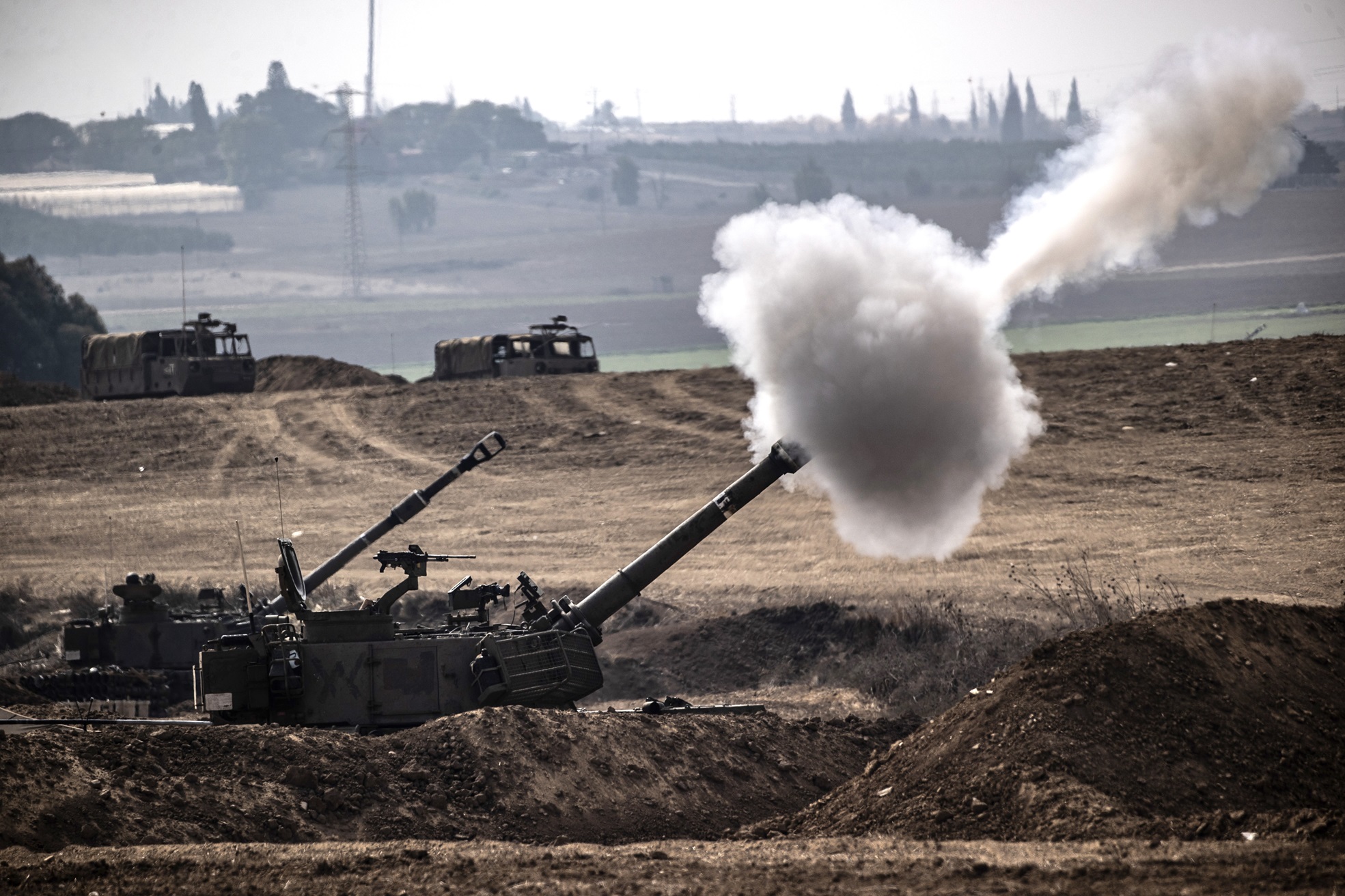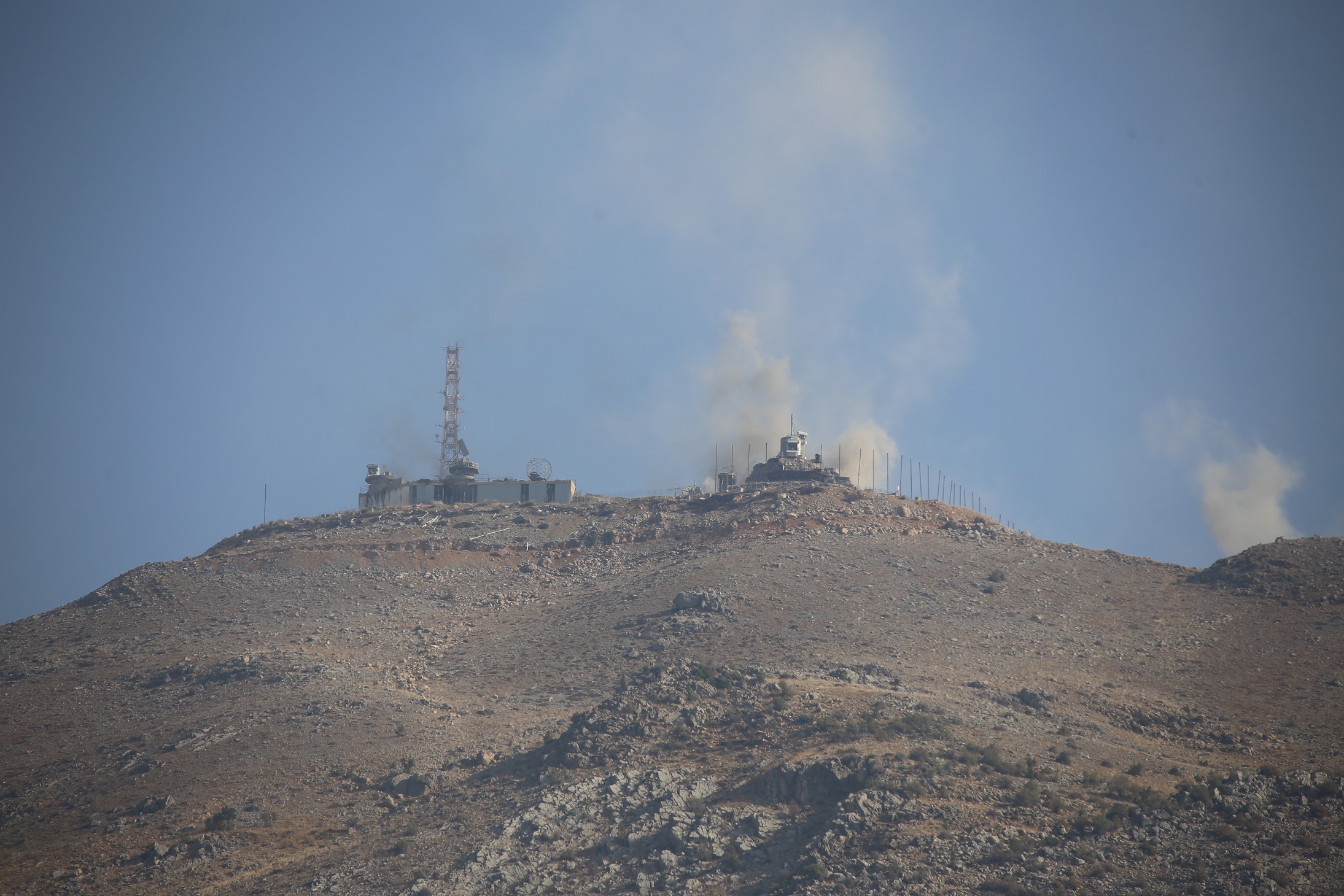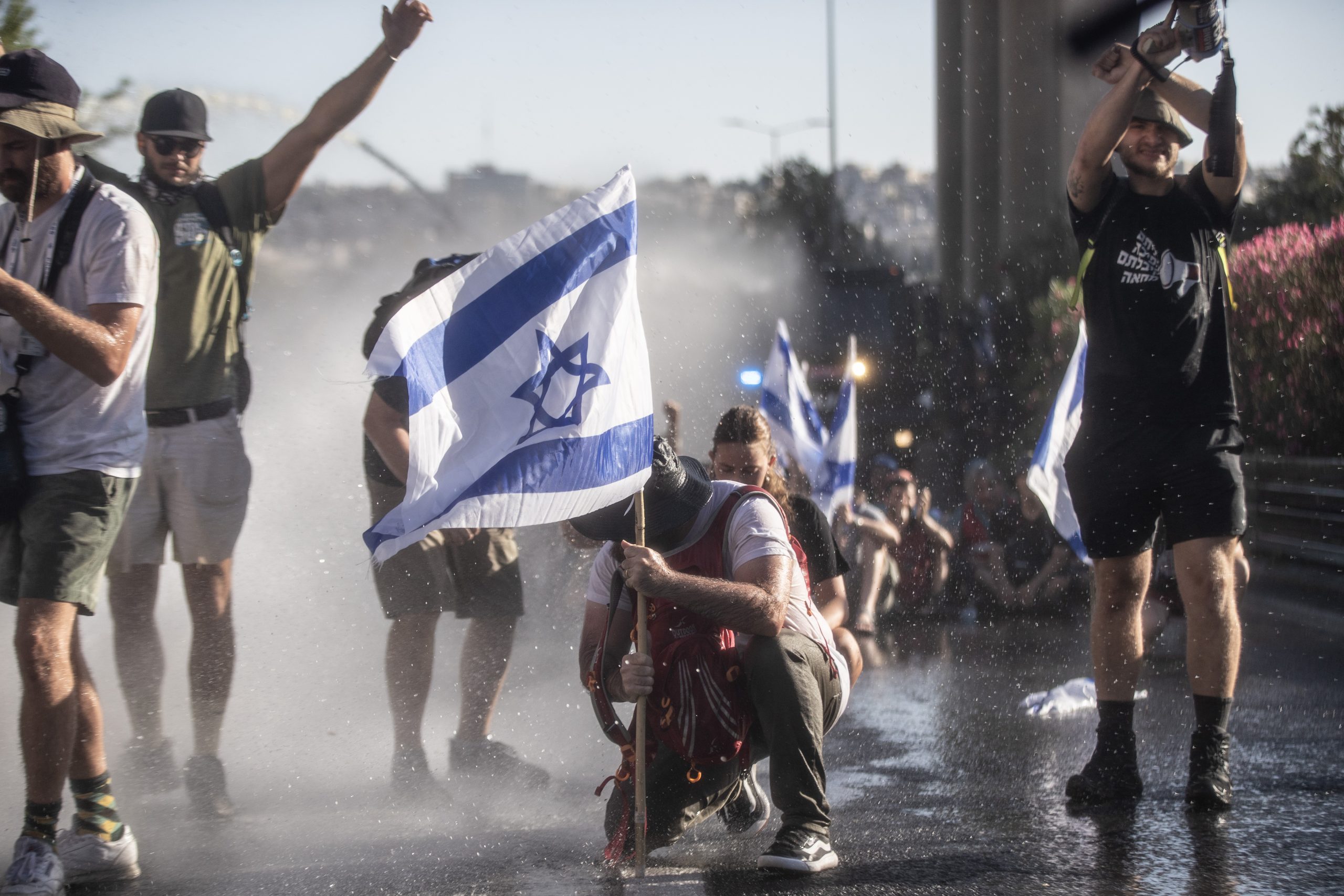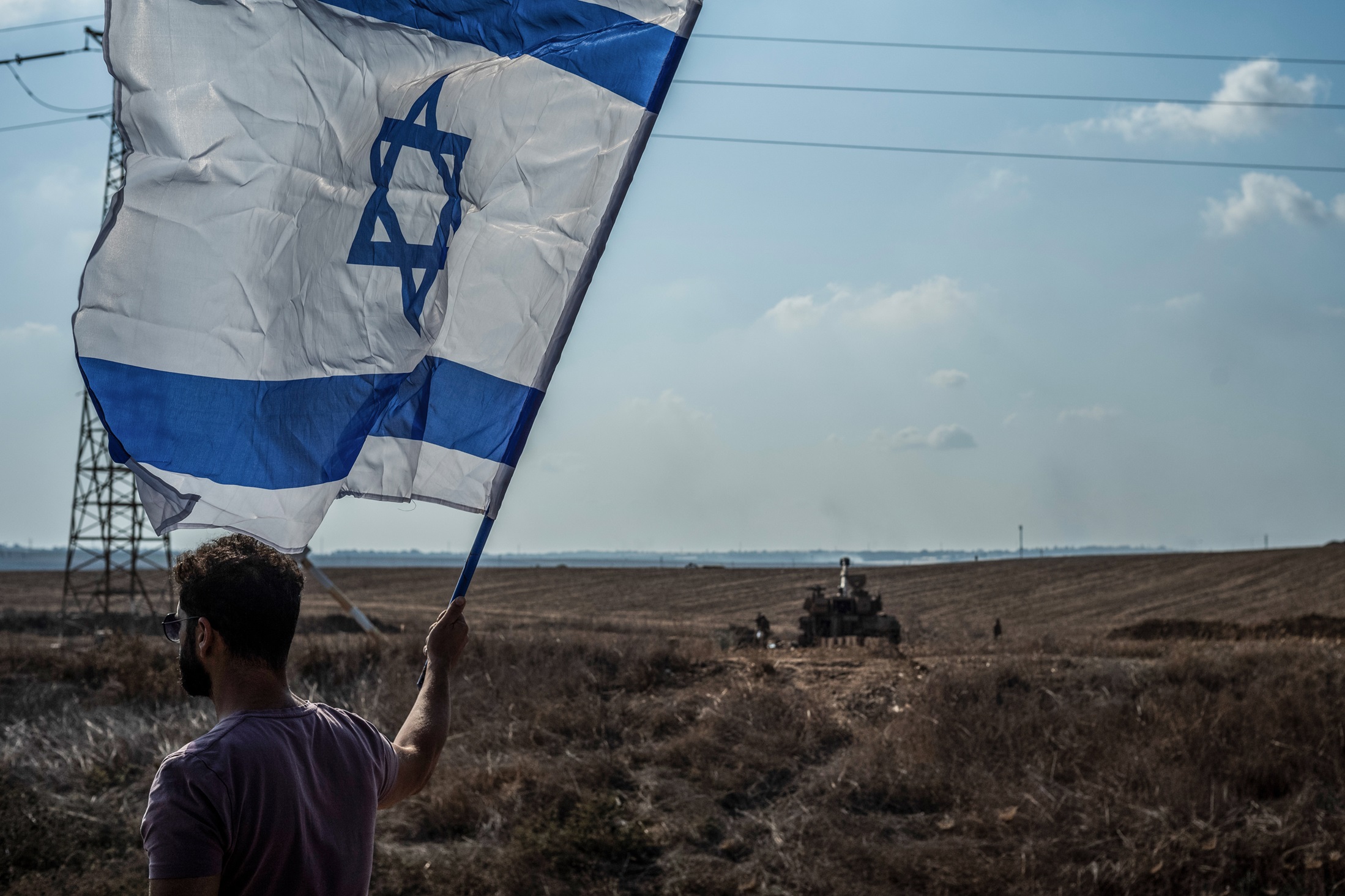Publications
INSS Insight No. 1792, November 27, 2023
The trauma of October 7 shaped the Israeli public’s collective sense of an existential threat, and consequently fostered a broad consensus that Israel is in the throes of a just and unavoidable war against Hamas. This is the basis for the overwhelming public support both for the IDF and for the war’s objectives, as defined by the government. Yet a long war, and certainly if it spreads to other fronts or encounters serious obstacles, would pose a considerable threat to Israel’s societal resilience and might challenge public solidarity. The more severe and prolonged the damage to resilience, the greater the negative impact on the public support for the war effort. The time to prepare for such an eventuality is now.
In the fifth week of the IDF’s ground operation in Gaza, the overwhelming public support for the military counterattack is evident. This solidarity and "rallying around the flag" rest on a sweeping consensus in the public, including the establishment media, concerning the war’s objectives as defined by the political leadership. The widespread sense of anxiety caused by by a profound threat has resulted in a consensus that this is a just and unavoidable war, designed to defend the homeland and citizens against a vicious, inhumane enemy that must be eliminated. This leads to a deep identification with the war effort and strong support for the IDF, which is enormously valuable in the fight against Hamas.
Will this fervent support for the IDF’s war effort in Gaza last as long as the fighting continues? What factors might undermine or affect this support? It is already important to examine the possible answers to this question, as at least some of them might include elements that could sustain the public support for the military effort and its crucial influence on the war’s outcomes.

Among the several factors that might limit public support for the military effort:
- The nature and duration of the war: The war against Hamas might continue for a long time, perhaps many months, with varying intensities. In a dynamic military situation, there could be serious mishaps, as well as ups and downs and gains and losses. These, along with the reverberations of the collective trauma of October 7 and a mounting number of casualties among soldiers, would influence the national mood. As long as the military progress is clear, concrete, and significant relative to the declared war objectives, the public support will remain firm. But if the war effort is seen as “treading water,” particularly if accompanied by heavy losses, public support might decline.
- The hostages: This painful and complex issue, in which babies, children, women, and elderly people are held captive by Hamas, sharpens the difficult dilemmas facing Israeli society and its political leadership. As time passes, if this painful issue is not fully resolved, it might severely damage societal resilience and possibly the public’s broad support for the war.
- The families evacuated from the Gaza envelope and the north constitute a large and diverse group. Some have no homes to return to, while others are currently not allowed to return home for security reasons. As time passes, some may lose patience, express their distress and frustration in public, cast accusations of being abandoned, and thus dampen the national mood.
- The civilian challenge on the northern front: The lessons of October 7 in the Gaza envelope and the evacuation of tens of thousands of citizens from dozens of localities in the north present a tough challenge for any efforts to restore normal life without fundamentally changing the security situation in southern Lebanon. Such a change might require intensive, perhaps even all-out war against Hezbollah. Given Hezbollah’s capabilities, such a war would have a severe impact on the home front all over Israel, and include serious damage to critical national infrastructures. A long and complex war in the north, particularly if it develops alongside the continued fighting in Gaza, would place a heavy burden on the civilian core, perhaps even undermining public support for the war effort. In some sectors of the Israeli public, it might generate a gradual sense of doubt regarding its continued effectivity. Such a bleak development might raise public objections to the protracted war and inspire calls to end the fighting on both fronts.

- Multifront hostilities: So far, it appears that most of Hamas’s "potential partners" have ignored the organization’s calls since the start of the war to join fully in a united assault against Israel. This applies particularly to Lebanon, where Hezbollah, for its own reasons, has for now refrained from escalating the current hostilities to a full-scale war. But this might change. Moreover, there is also potential for a deterioration in the security situation in the West Bank, partly due to the growing violent friction between extreme right wing Jews and local Palestinians. In Israel itself, calm has generally been preserved between Arabs and Jews, yet careless handling of this sensitive relationship could cause an unwanted outbreak.
- The economic situation: A lengthy war, especially on two fronts, will incur very high costs to the economy and to individual households. The costs of the fighting itself are steep; hundreds of thousands of enlisted reservists and evacuees are not working; the return to routine in educational institutions and in workplaces is slow; and delays in the supply chain in Israel and from abroad could challenge the economy severely. Such problems might also erode the public support for the war effort.
- Dysfunctional government ministries: The broad and inspiring wave of civilian volunteer efforts stands in stark contrast to the ineffective management by much of the governmental system. Some ministries have recently shown signs of slow recovery, but they are still far from meeting the needs and expectations of the public in this challenging period. This failure contributes to feelings of frustration among citizens in need of systemic and specific governmental responses.
- Israeli politics: The ubiquitous slogan “together we will win” could prove to be hollow if the pre-October 7 deep polarization of the Israeli public reappears, perhaps with even greater intensity. There are already troubling signs that rifts and identity politics are alive and kicking. The same applies to public disagreements over the Israeli-Palestinian conflict and the role of the Palestinian Authority in Gaza’s postwar reconstruction. In the absence of rapid and concrete military accomplishments, ongoing anxiety, confusion, uncertainty, everyday difficulties, and lingering frustrations might accumulate and deepen the existing societal rifts. Those are the biggest enemies of solidarity, which is so essential in times of war.

- The international response to the war: To date, Israel enjoys significant support from Western powers, above all the United States, as well as from the American public and Jewish communities worldwide. Despite initial cracks due to hostile media and international public criticisms of Israel concerning the humanitarian plight in Gaza, the support continues. This might decline due to internal pressures as the war continues to affect civilian life. External pressures on Israel to restrain its military actions, or even accept a long term ceasefire, will likely precede any domestic pressure to do so. But weakening international support, particularly from the United States, would have a negative effect on the home front and increase doubts over continuation of the military effort.
The significance of all these elements, particularly if some or all converge, is that time is the main factor in this war, including on the domestic front. Time does not necessarily work in favor of Israel’s military effort. A long war, especially one that extends to other fronts, would pose a severe challenge to Israel’s societal resilience and might create an internal hourglass that could undermine the current mobilization, solidarity, and support for the IDF. Civil unrest that gains momentum would have a negative impact not only on societal cohesion, but perhaps also on the sense of determination that is presently so evident in the IDF.
Now is the time to start preparing to confront the hurdles that lie ahead. This means building an array of responses to the issues listed above in order to reinforce Israeli society’s current resilience for the duration of the war and beyond.
Since the outbreak of the war, the government’s performance in the face of internal civilian challenges has been incomplete, revealing elements of makeshift improvisation and confusion. Until now, civil society, both individual volunteers and NGOs, have compensated for governmental deficiencies with a surprising degree of success. But that is not enough. There is an urgent need for the government and political system to regain their ability to function. This is the first and most essential condition for the creation of a new infrastructure capable of tackling the enormous domestic challenges that lie ahead.
Just as the IDF bounced back within a few days of the October 7 disaster, the government must fulfill its tasks on the civilian front by uniting all forces, based on priorities dictated by the war and its domestic repercussions. Now the government must work with civilian society to promote adequate systemic responses for the short term, and more fundamental ones for the medium and long terms. Israel needs the national leadership to take charge – and the sooner the better.



